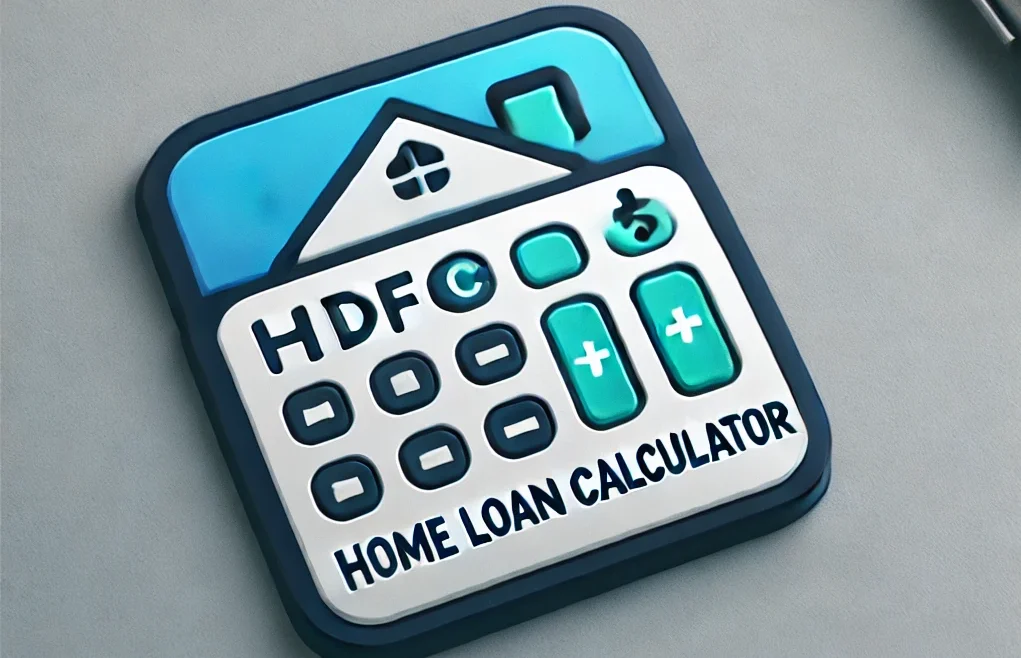Prepaying a home loan can be a great way to reduce your long-term interest burden and become debt-free sooner. If you have an HDFC home loan, you might be considering prepayment to reduce your financial liabilities. However, before making this decision, it’s crucial to understand the tax implications of prepaying your home loan. While prepayment can lead to significant interest savings, it can also reduce the tax benefits you’re entitled to under the Income Tax Act. So, is it worth it? Let’s break it down.
What is Home Loan Prepayment?
Home loan prepayment refers to paying off a part of your home loan ahead of schedule. By making a lump sum payment towards the loan principal, you can reduce your overall loan tenure and the interest you would otherwise pay over the life of the loan.
HDFC allows its borrowers to prepay their home loans without any prepayment penalty, making it a financially viable option for those who can afford it.
Tax Benefits on Home Loan Repayment
Before discussing the impact of prepayment, it’s essential to understand the tax benefits available on home loan repayments. There are two primary components of a home loan repayment:
- Principal Repayment: Eligible for a deduction under Section 80C of the Income Tax Act, up to ₹1.5 lakh per financial year.
- Interest Repayment: Eligible for a deduction under Section 24(b), with a maximum limit of ₹2 lakh for a self-occupied property. For a rented property, there is no upper limit, but the total loss from house property is capped at ₹2 lakh.
How Prepaying Your HDFC Home Loan Affects Tax Benefits
1. Reduced Interest Payments
One of the main reasons people choose to prepay their home loan is to reduce the overall interest burden. Since interest is calculated on the outstanding principal, prepaying a portion of your loan reduces the principal and, subsequently, the total interest payable.
Impact on Tax Deduction (Section 24b):
- By prepaying the loan, you reduce the interest you pay, which means you’ll claim a lower deduction under Section 24(b).
- If you’ve been claiming the maximum deduction of ₹2 lakh on interest payments, prepaying your loan could reduce this amount, thereby lowering your tax savings.
Example: Suppose you were paying ₹2.5 lakh in interest annually and claiming a deduction of ₹2 lakh under Section 24(b). If you prepay a portion of your loan, the interest might reduce to ₹1.5 lakh. While you’ll save money in interest payments, your tax deduction will now be limited to ₹1.5 lakh, reducing your overall tax savings.
2. Reduced Principal Repayment
Prepaying a loan directly affects the outstanding principal, and as the principal reduces, the EMI consists of a smaller principal repayment portion.
Impact on Tax Deduction (Section 80C):
- If the principal repayment amount in your EMI decreases due to prepayment, your eligibility to claim deductions under Section 80C may also decrease.
- Remember, the deduction limit under Section 80C is ₹1.5 lakh, which includes other savings and investments (such as PPF, EPF, life insurance premiums, etc.).
Example: If your current EMI includes ₹1.6 lakh in principal repayment and ₹2 lakh in interest, prepaying the loan may reduce the principal repayment to ₹1 lakh. This would limit the deduction you can claim under Section 80C, potentially affecting your total tax benefits.
Is Prepaying Your HDFC Home Loan Worth It?
Whether prepaying your home loan is worth it depends on your financial situation and goals. Let’s consider the pros and cons:
Pros of Prepaying Your HDFC Home Loan
- Interest Savings: Prepaying your loan reduces the total interest payable over the tenure, leading to substantial savings, especially in the early years when the interest component is higher.
- Reduced Loan Tenure: By reducing the principal, you shorten the loan tenure, helping you become debt-free sooner.
- Lower Financial Burden: A reduced loan balance means lower EMIs or a shorter loan term, freeing up income for other financial goals.
Cons of Prepaying Your HDFC Home Loan
- Reduced Tax Benefits: As discussed, prepaying reduces both the principal and interest components of your EMIs, which in turn reduces your tax savings. If you’re currently benefiting from the maximum deductions under Sections 80C and 24(b), prepayment could lower your eligible deductions.
- Opportunity Cost: The funds used for prepayment could be invested elsewhere for potentially higher returns. If the return on investment (ROI) from other financial instruments exceeds the interest rate on your home loan (after factoring in tax deductions), it might make more sense to invest the money instead of prepaying the loan.
- Liquidity Crunch: Prepaying a loan often requires a significant lump sum payment. If you deplete your savings for prepayment, you may face a liquidity crunch, making it harder to handle emergencies or other financial needs.
When Should You Consider Prepaying?
Here are some scenarios where prepaying your HDFC home loan could be beneficial:
- You’ve Already Maximized Your Tax Benefits: If your interest payment is below the ₹2 lakh deduction limit under Section 24(b), and you have other investments covering your Section 80C limit, prepayment may be a good option.
- You’re in the Final Years of the Loan: As your loan progresses, the interest portion decreases while the principal repayment increases. In the later years of the loan, the tax benefits on interest payments reduce, so prepaying may help save on the remaining interest.
- You Have Idle Funds: If you have surplus funds sitting idle or earning a lower rate of return than your home loan interest rate, prepaying the loan makes financial sense.
- Low Opportunity Cost: If your risk tolerance is low and you don’t foresee making high returns from other investments, prepaying the loan could offer peace of mind and reduce financial stress.
Conclusion: Should You Prepay Your HDFC Home Loan?
Prepaying your HDFC home loan can lead to significant interest savings and a shorter loan tenure. However, it also reduces the tax benefits you enjoy under Sections 80C and 24(b). The decision to prepay depends on your financial priorities—whether you value immediate interest savings or long-term tax benefits.
To make an informed decision, evaluate your current tax savings, your loan’s interest rate, and potential returns from other investments. Consulting a financial advisor can also help you assess whether prepayment aligns with your financial goals.

